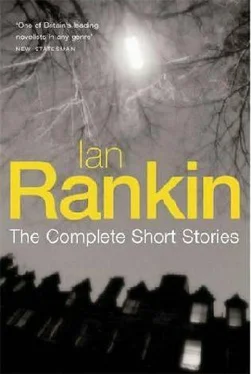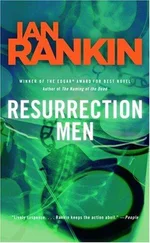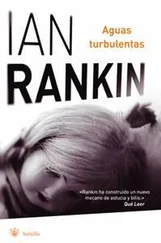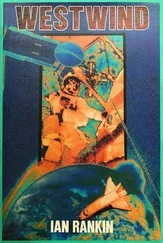(How much of this do you need?)
Look there: beside a cigarette packet – three crumpled balls of paper. Lyric sheets. Let’s pick up one of those, unravel it. A rough draft, just a few lines really, searching for an internal rhyme. At the top, the words ‘Tea and Sympathy’ underlined, followed by a double question mark: the song’s working title.
The band photo: might be worth something to the groupies outside. Except most of them have gone further: their bodies are their autograph books. They trade stories of scenes they’ve been part of, tales you’d have to tone down even for the Sunday scandal-sheets. It’s four in the morning now, but you can bet there’ll still be a huddle outside the studio. Sometimes someone takes pity, gives orders for hot tea to be dispensed, with or without the sympathy. Four o’clock and London feels like a backwater. There’s a man seated on the floor in the corner. He’s asleep. He was asleep twelve hours ago. Twice now you’ve checked he’s still breathing. Thin grey hair, curdled beard, clothes from California. He’s a writer too, only he’s more famous than you. His first novel made him rich. He’s been working eight years on a follow-up. When he was last awake, you interviewed him for your piece.
‘This’, he told you, ‘is the beginning of the negation of a generation. The cusp of devilment, my friend, seizing the day and wringing its neck. All God’s children got wings, but only acid has the flight schedule. You have the look of a smoker: give me a cigarette.’
You’d seen him described once as ‘a lost generation guru’. More than one meaning there, friend.
Where did they come from, these people? They seemed to attach themselves to the band for hours, days, weeks. They seemed to do so with ease. But the core of the band… you’ve yet to see anyone penetrate that. Like there’s some inner sanctum, someplace no one else is allowed. That’s what you want your piece to penetrate; yours would be the last word, the defining statement. This was the deal you’d made with yourself.
Biography: born working class; local secondary modern; art college and rhythm guitar in a couple of groups. Then you’d written your four angry plays and they’d become a quartet, a success on the London stage, now touring the provinces. Nobody got all the jokes; nobody got all the anger.
The thing is: you’re not angry now. But anger is what everyone wants from you. You’ve written five hundred words on the band, only another four and a half thousand to go. And there are girls outside who would sleep with you for your mere proximity to something they can’t have. And there’s a man asleep in the corner who earns more for a public lecture than you did for your first two plays. And as he told you, he lectures off the top of his head. The head you’re itching to kick, but not in an angry way…
And here’s Anita again, and she’s saying: ‘You’re my chauffeur, darling.’ Handing you some keys, she pecks your cheek, her eyes smeared black. You ask her what your name is, and she laughs.
‘Chauffeurs don’t have names, liebchen.’
Then she leads you out to the Bentley.
The girls outside, they don’t like Anita. They offer her dark glances. Does Anita have one of those metaphysical backstage passes, the kind marked ‘All Areas’? No, you don’t think so, and it seems to annoy her. For all her power, all her obvious allure, she lacks that final ticket of admission.
So you’re driving through the silent streets, getting further and further away from your story, and she’s spread across the back seat. The windows are open and her hair is flying across her face. She’s singing the same notes over and over.
‘Ooo-ooo; ooo-ooo.’
She asks you what they sound like.
‘A train,’ you yell into the wind. ‘You know, the whistle blowing.’
She smiles. ‘You’re a romantic.’
‘Well, if it’s not a train, what is it?’
She sits upright, slides forward so her head is just behind yours. ‘Banshees,’ she says quietly. ‘They’re banshees.’ Her mouth is close to your ear. ‘Ooo-ooo,’ she goes. Then she sits back.
You ask her where you’re supposed to be going, but she’s not listening. You end up driving along the Embankment, thinking maybe she wants dropping off at Cheyne Walk, but she doesn’t even recognise the place. A couple of taxis are pulling away from the Houses of Parliament: end of a late-night debate. There’s a police car parked at the entrance to Downing Street. You wrote a piece about the government for one of the Sunday papers. Nobody paid much attention. When the tramp back at the studio wrote about JFK’s assassination for Playboy, they paid him five thousand dollars. And he got to spend the day at Hefner’s mansion. You’re sure the band have been there, too. Anita probably wasn’t invited.
‘Christ!’ she shrieks, so that you flinch at the steering-wheel. ‘I’ve had the most amazing idea!’
She’s ordering you to turn the car round, cursing you for taking her so far from the studio. You don’t even know whose car it is. But you bend to her urgency, take the Bentley up on to a pavement as you swing back in the direction you’ve just come. Back to the studio, where Anita flies into the recording room.
And now she’s back again, gathering everyone together. Even the writer wakes to her spell. There’s a French director there, too – Godard, isn’t it? He has a film crew with him. He tried to talk to you about anarchy yesterday, but his English and your French conspired against the dialogue. A circle is forming around the microphone. You’ve all got headphones on, and finally, after instructions from Anita, the track begins to play. Anita leads you all in the dance. Percussion, then the lead vocal with piano accompaniment. On the periphery, you can see the band. They’re in the production suite with the engineer. They look tired, indulgent. Maybe just drunk. Then Anita raises her hand. It’s just about time.
‘Ooo-ooo! Ooo-ooo!’
‘Ooo-ooo! Ooo-ooo!’
And you’re the banshee in a rock and roll band…
Where is this party? The tall windows are draped with black velvet. Candles; red lightbulbs; batik scarves thrown over lampshades. Sweet herbal fug in the air. Drug cocktails a speciality de la maison. The host – you’ve barely spoken with him – is minor aristocracy according to one of your sources, dabbles in the stock market according to another. The food has mostly gone. Guests have been folding up multiple slices of smoked salmon and cramming them into already bloated cheeks.
It’s hard to tell because of the lighting, but nobody looks really well. Faces are pierrot white, or would be in daylight, in sunshine. Is there sunshine outside? Watches are being removed at the door, taken away and hidden by the host. No clocks. No telephones, radio, TV.
‘We’re out of time,’ he’d said, smiling. ‘This party does not exist in time. And we keep on partying till nineteen-seventy. ’
You’d felt like asking him how anyone would know when nineteen-seventy arrived, but then someone had passed you a joint and you hadn’t asked any questions after that for quite a while.
What was it? Not just hash: hash you can handle. Some altogether weightier matter: a touch of heroin in the mix? A well-toked speedball? There’s music playing, and bodies strewn over the floor and the sofas and the scatter-cushions. You were brought here by two of your subjects – you’ve begun to think of them as ‘subjects’, not that you’re their master, quite the reverse – but now you can’t see anyone you know. Jeff the Nose has been and gone. Klein was invited apparently, but no way would he show: rumours of contract difficulties, of money owed. A Beatle… did a blessed Beatle drift past your eyeline an hour or more ago? And did he look too mortal?
Читать дальше












